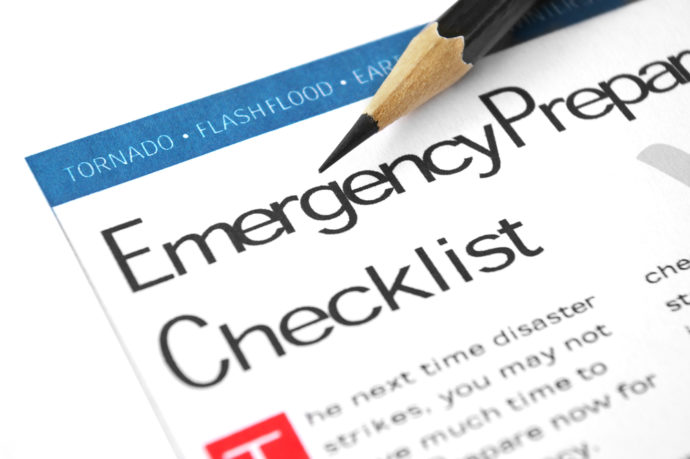The extensive flooding that Hurricane Harvey brought to southeast Texas has reminded us all how quickly disasters can happen, and how difficult it can be to recover from devastating events. Being as prepared as possible before disaster strikes can make it easier to get your life back to normal if you do happen to be affected by one. Here are some things to think about and discuss with your loved ones, so you will know what to do in an emergency:
Know what kinds of disasters you could face. Be aware of what types of disasters could impact your area. Southeast Texas is likely to see hurricanes and flooding in the future, as well as tornadoes. However, it is unlikely that a major earthquake will occur in the area since there are no fault lines underneath this region. Keep in mind that man-made disasters, such as house fires, gas leaks, or chemical spills can occur anywhere.
Sign up for Emergency Alerts. Take advantage of the systems that public safety officials use to alert you to natural and man-made disasters in your area. Wireless emergency alerts can be sent to your smartphone by the National Weather Service that will alert you to imminent threats in the area and what actions you should take.
Where would you go in a disaster? Think about each type of disaster that could occur, and have a designated place where your family can regroup. It is good to have a designated place close to your home, one just outside of your neighborhood or area, and one further afield. For instance, if there was a fire in your home, selecting a nearby neighbor’s yard as your go-to is a good choice and will make it easy to see if everyone is accounted for. If there was a chemical spill or gas leak that prevented you from getting into your neighborhood, having a meeting point a couple miles away would make it easy to reconnect with household members. For tornadoes, you should select an interior room on the lowest floor of your house where everyone knows to head to if there are tornado warnings. In case of flooding, go to the top floor of your house that has windows. If your home is not safe enough to withstand a tornado and hurricane-strength winds, know where the nearest designated shelters are in your area. If you have pets, they should be factored into the decision of where to go for each type of possible disaster.
Have an emergency kit. Make a basic emergency kit that includes food, water, first aid supplies, flashlights, and a battery-powered radio. Keep it assembled and ready to use in case of an emergency. Be sure to think about any medications or necessary items that would be required by your family members in a disaster. Also, make sure that there are a sufficient amount of smoke detectors and fire extinguishers in your house. Check your smoke detectors monthly and change out the batteries annually.
Practice Your Emergency Plans. Discuss with everyone in the household what each person will do in each situation. Pretend there is a fire in various parts of the house and use different escape routes. Do a practice tornado drill and have everyone gather in the designated tornado warning room, or see how quickly you could get to an adequate shelter after receiving an alert.
Be financially prepared. Any unexpected expense can be financially difficult, but a major disaster could negatively affect your family for many years to come. In the event that something does happen, having access to your personal, financial, insurance, and medical records can speed up the recovery process. Make copies of your important documents and store them in a weatherproof safe deposit box and sign up for online access to your policies and accounts. Make sure that your possessions are adequately protected in case of a disaster; take photographs of any large purchase items you may have inside your home or garage, and store those pictures online in case you need to make an insurance claim. Try and set aside money in a savings account that is specifically for emergencies. Even if all your possessions are fully insured, you may have a long waiting period until you receive a check from your insurance company. Also, if someone is injured in the disaster, you may need some cash on hand to pay upfront costs for medical bills.
Disasters can happen anytime and Eastex is always here to help our members. In an effort to assist our members who were impacted by Hurricane Harvey, Eastex CU automatically skipped all loan payments that were due between 8/25/17 through 9/30/17. If you need financial advice on how to prepare for a disaster or need help recovering from Hurricane Harvey, let Eastex CU help. Drop by one of our branches to speak with one of our loan specialists or give us a call at 866.445.9622.




